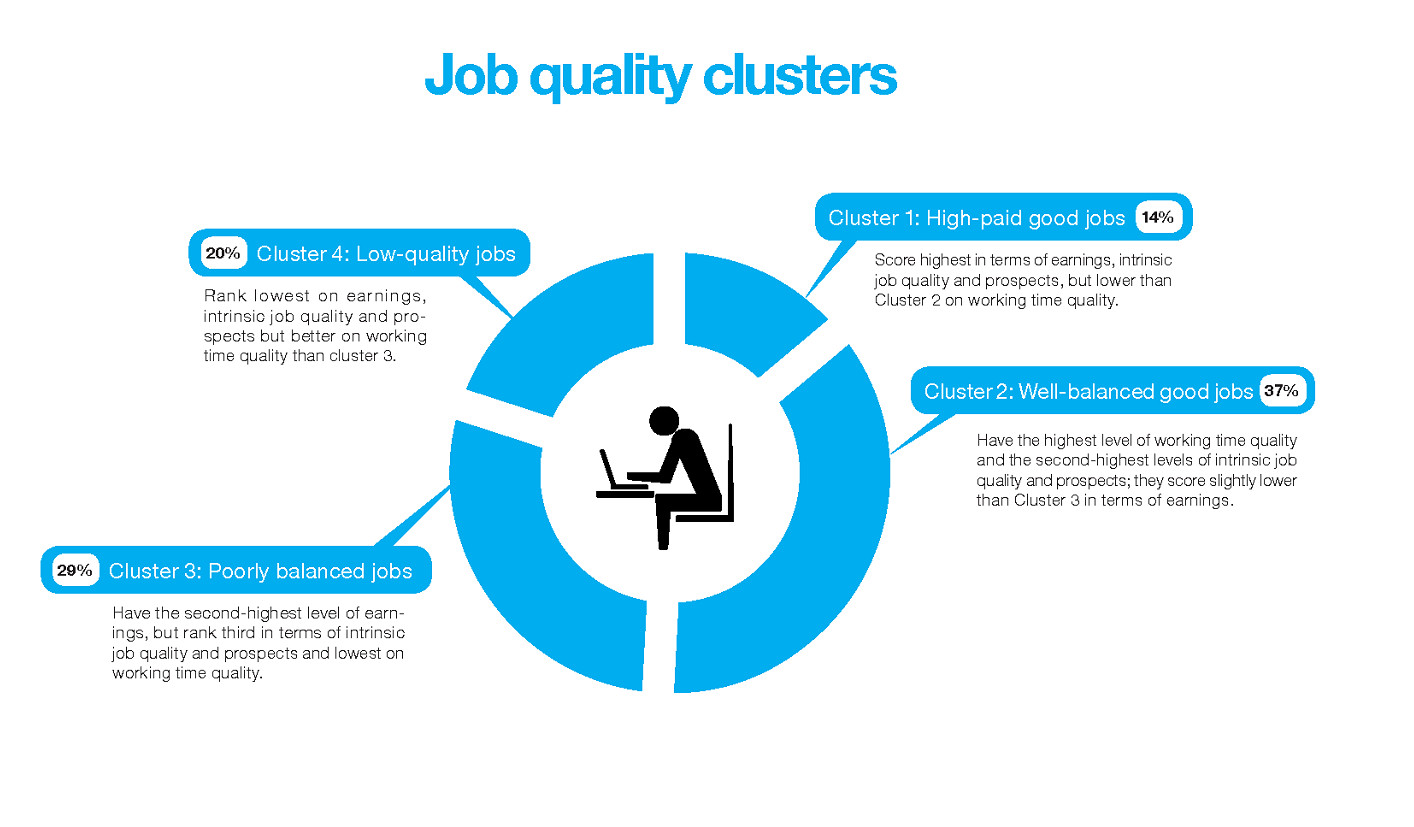
Too many workers in the European Union continue to labour in inferior jobs. One-fifth have jobs that Eurofound has judged to be of low quality – jobs that pay poorly, offer little chance of career progression and give little sense of fulfilment. These jobs are found disproportionately in companies with fewer than five employees and are more common in the private sector. A further 29% of workers have jobs that pay relatively well, but entail a poor work–life balance.
Aspiring to quality of work is worthwhile if for no other reason than that better jobs enrich lives and improve well-being. But there is also an economic motivation, one that the European Union has put its weight behind since the Lisbon summit of 2000 with the concept of ‘more and better jobs’. In building its employment strategy the EU has taken the stance that focusing on job quality will give the EU a competitive edge against worldwide competition. Good working conditions develop the potential of the workforce and are a basis for innovative and dynamic business environments that will drive economic growth.
Soaring unemployment rates have made some EU Member States desperate to find solutions that will create jobs; in such employment troughs, quantity takes precedence over quality. Will the goal of better jobs be shelved until Europe's economy gets back on track? Does economic stability come first? The research that Eurofound conducted found that countries with greater economic development had fewer low-quality jobs.
A summary of Eurofound’s analysis of job quality in the EU can be found in the 2012 Eurofound yearbook; full findings are in the report Trends in job quality in Europe.